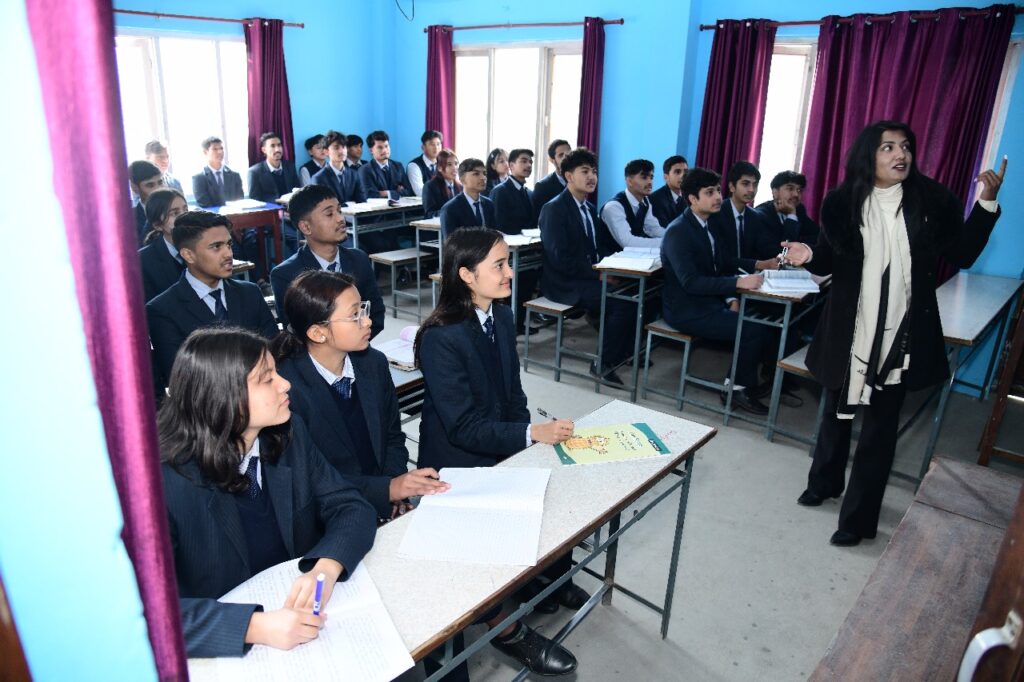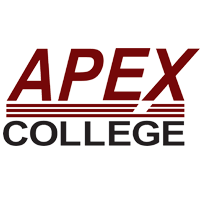Overview
Sagarmatha College (SM College) is based in Dillibazar, Kathmandu. It runs National Examination Board (NEB) +2 programs and Purbanchal University (PU) bachelor’s and master’s degrees.
Offered programs include +2 Science, Management, Humanities, and Law, and degrees such as BBA, BALLB, MBA, and MA in Sociology/Anthropology. The college was established in 2000 AD (2057 BS).
This profile is written for students, parents, teachers, planners, policymakers, and researchers.
It focuses on verified details about programs, admissions, facilities, campus life, and support services for readers in Nepal and abroad.
Quick Highlights
-
Location: Dillibazar, Kathmandu, Nepal
-
Established: 2000 AD (2057 BS)
-
Affiliations: NEB (+2) and Purbanchal University (Bachelor’s/Master’s)
-
Programs: +2 Science, Management, Humanities, Law; BBA; BALLB; MBA; MA (Sociology/Anthropology)
-
Admissions: College entrance assessment and PU rules for degree-level entry
-
Facilities: Library, hostel, cafeteria, science labs, computer lab, sports, internet, transport, auditorium, counselling
-
Contact: smcollege.edu.np | 01-4533334, 01-4533810
Academic Programs Offered
+2 Programs (NEB)
+2 Science
The Science stream prepares learners for engineering, medicine, IT, and applied sciences. Core groups include Computer, Physical, and Biological with Physics, Chemistry, Biology, and Mathematics. Eligibility: minimum GPA 1.6 for Grade 11 Science (confirm current NEB subject rules at intake).
+2 Management
The Management stream builds a base in accounting, economics, business communication, and entrepreneurship. Graduates often continue to BBA and related business degrees. Subject options follow NEB guidelines each year.
+2 Humanities
The Humanities stream covers social sciences, languages, and arts. It suits students planning a BA or fields such as media studies, social work, and public service.
+2 Law
The Law stream introduces legal studies, civic literacy, and justice systems. It supports a path to integrated law degrees such as BALLB.
Snapshot:
-
Science: Physics, Chemistry, Biology, Mathematics; options include Computer, Physical, and Biological groups; eligibility note: GPA 1.6 for Science entry (verify at intake)
-
Management: Accounting, Economics, Business Communication; options as per NEB cycle
-
Humanities: Social sciences and languages; entry to BA and related fields
-
Law: Foundation for legal studies; path to integrated law degrees
Bachelor’s Programs (Purbanchal University)
BBA
BBA includes management, finance, marketing, accounting, economics, information systems, research methods, operations, and strategy.
Learning includes class projects and an internship.
-
Eligibility: 10+2, PCL, or equivalent with at least 40% aggregate and D+ in each subject
-
Credits: about 129 credit hours with course components and internship
-
Sample courses: Business Mathematics, Financial Accounting, Marketing, Business Finance, HRM, MIS, Research Methodology, Strategic Management
BALLB (Integrated 5-Year Program)
BALLB combines BA studies with core legal subjects. Learning includes case analysis, legal writing, moot practice, and courses such as constitutional, civil, and criminal law. Admission follows PU instructions and the college entrance process.
Snapshot
-
BBA: 10+2/PCL or equivalent; 40% aggregate and D+ per subject; about 129 credits including internship; course list by semester
-
BALLB: 5-year integrated law program; follows PU and college entrance rules
Master’s Programs (Purbanchal University)
MBA
MBA builds managerial and analytical skills for business and development sectors. It runs as a full-time program with coursework and practical components. Applicants follow PU eligibility and the college selection steps.
MA in Sociology/Anthropology
The MA covers social theory, research methods, Nepali society and culture, and field inquiry. It suits roles in research, policy, community development, and teaching. Admission follows PU criteria and department review.
Snapshot
-
MBA: full-time coursework with practical components; entry per PU and college steps
-
MA Sociology/Anthropology: study of society, culture, and field methods; entry per PU rules
Admission Process
General Steps
Application Window
The college posts admission notices on its website and official channels.
Applicants should track program pages for dates, forms, and seat updates.
Entrance Assessment
All applicants sit for a college entrance test.
Degree-level entries also follow PU rules, which may include written tests and interviews.
Program-Specific Notes
-
+2 Streams: submit SEE credentials that meet NEB/college criteria. For Science, confirm GPA and subject groups at intake.
-
BBA: minimum 40% at 10+2/PCL or equivalent and D+ per subject; selection includes entrance and document review.
-
BALLB, MBA, MA: follow PU eligibility and college assessment steps announced each cycle.
Required Documents (typical)
-
Academic transcripts, character certificate, migration (if needed)
-
Copy of citizenship or passport
-
Two recent photographs
-
Any additional documents listed in the intake notice
Check the current-year list with the college office before submission.
Teaching Faculty and Learning Methodology
Academic Staff
Faculty Profile
Departments align syllabi with NEB and PU. Course leaders manage assessments, internal reviews, and student guidance. Teaching staff bring subject experience and classroom practice.
Learning and Assessment
Classroom Approach
-
Concept-focused teaching with unit tests and short quizzes
-
Tutorials and support classes where needed
-
Presentations, group tasks, and case analysis in business and law
-
Labs in science and computing as per course plans
Assessment Practices
-
Mid-term and terminal tests on the academic calendar
-
Project work, viva, or practicals where required
-
Final exams as per NEB/PU rules
Infrastructure and Learning Facilities
Academic Facilities
Library and Learning Resources
The library offers course books, journals, newspapers, and reading spaces. Departments share readings and e-resources for projects and thesis work. Students can access reference help during library hours.
Computer and Microprocessor Labs
Labs cover office tools, databases, programming basics, and web concepts. Multimedia display is used for demonstrations. Computing sessions follow course outlines.
Science Laboratories
Physics, Chemistry, and Biology labs support +2 Science practicals. Schedules follow NEB requirements and internal calendars.
Campus Facilities
Classrooms
Rooms are ventilated and arranged for lectures, discussions, and board work. Multimedia support is available where needed.
Hostel and Cafeteria
Separate hostel arrangements are available for boys and girls. The cafeteria serves regular meals and snacks during class hours. Seat availability and fees are posted each term.
Internet and IT Services
Campus internet supports research and communication. Computer labs provide access for assignments and projects.
Transport
Transport runs on set routes on working days, based on demand and seat plans.
Sports and Co-curricular Spaces
Indoor and outdoor games are scheduled during the year. Students can join inter-house and inter-college events.
Auditorium and Event Halls
Multipurpose halls host orientations, guest lectures, workshops, and student events.
Student Life and Campus Experience
Day-to-Day Academic Life
Students attend classes, labs, tutorials, and mentoring hours on a set timetable. Internal tests, assignment deadlines, and exam preparations follow NEB/PU calendars.
Clubs and Forums
Student clubs run talks, debates, volunteer work, and peer learning. Clubs help learners build confidence, communication, and teamwork.
Support Services
-
Academic counselling for subject choice and exam plans
-
Guidance on university forms and registration
-
Internship referral and early career guidance where available
Extracurricular Activities (ECA)
Activities and Events
Academic and Cultural
-
Symposiums, guest sessions, and theme talks
-
Cultural programs and festival events
Community and Outreach
-
Blood donation and cleanliness drives
-
Local service projects with student groups
Competitions and Showcases
-
Quiz contests, creative writing, debates, and presentations
-
Moot practice for law; case events and pitches for management
Event dates and criteria are announced each term.
Scholarships and Financial Support
Scholarships
Merit and Need-Based Aid
Scholarships are posted each session for strong academic records and financial need. The college may also consider sports and other achievements. Conditions and quotas appear in the admission notice.
How to Apply
-
Mark scholarship interest on the application form
-
Attach marks/grade sheets and proofs for need or achievements
-
Track results on official channels
Fee Waivers and Awards
Departments may recommend fee waivers or awards tied to internal or board outcomes, subject to policy and available seats.
Achievements and Institutional Milestones
Timeline and Notable Points
-
2000 AD (2057 BS): college established in Dillibazar, Kathmandu
-
Affiliations: NEB for +2; Purbanchal University for bachelor’s and master’s programs
-
Program growth: integrated BALLB added; management and social science offerings expanded
-
Campus life: alumni talks, student forums, and showcases across the year
For pass rates, placement data, and scholarship counts, request annual reports from the administration.
Why Choose This Institution?
Academic Path with Continuity
Learners can start at +2 and progress to bachelor’s and master’s in one campus. This helps planning, mentoring, and steady academic growth.
Location and Access
Dillibazar is central and connected by public routes. Commuting is feasible for students from different parts of the valley.
Clear Eligibility and Curriculum
The BBA entry rule and credit plan are public. Applicants can compare workload and outcomes before applying.
Campus Engagement
Clubs, talks, and events support public speaking, teamwork, and peer learning. These activities add value to classroom study.
Facilities and Support
Facilities include a library, labs, hostel, cafeteria, sports, internet, transport, auditorium, and counselling.
They support daily study and exam preparation.
Scholarship Opportunity
Scholarship notices cover merit and need. Applicants can prepare documents early and apply within the deadline.
Conclusion
Sagarmatha Multiple College offers NEB +2 and PU degree programs on a single campus in Dillibazar, Kathmandu. Programs include +2 Science, Management, Humanities, Law, and degrees in BBA, BALLB, MBA, and MA in Sociology/Anthropology. Admissions use a college entrance test and course-based eligibility.
Facilities, clubs, and scholarships support learning and student growth. Prospective students should check the website or call the administration for the latest dates, fees, and scholarship rules.
Contact Sagarmatha College's administrative office for detailed information on the course, admissions, location, fees, scholarships, facilities, counseling, or eligibility.
Contact Details:
Dillibazar, Kathmandu, Nepal
Phone: 9851022188, 9851095850, 9851190890, 01-4533810, 01-4533334
www.smcollege.edu.np
info@smcollege.edu.np


















